Professional Program in
Open Education
Program Overview
This comprehensive and flexible online program is designed to develop expertise and capacity across a broad spectrum of open educational practices, including open educational resources and pedagogies, educational technologies, policy, advocacy, and scholarship. The program balances both theoretical and practical elements, always ensuring that critical perspectives and issues are foregrounded.
Check back later as additional program information will continue to be added.
Who the Program is For
This program is the ideal professional development opportunity for educators, practitioners, technologists, librarians, leaders, policymakers, and others who endeavour to widen equitable access to education. This program is designed to provide a comprehensive foundation for new practitioners as well as to complement and significantly advance the expertise of those already working to support open education. Graduates of other formal open education training opportunities may be given the option for advanced placement in this comprehensive program in order to build on and complement their existing training. This program is open to all and does not require institutional membership or sponsorship.
View Info Session Recording*Contact Us
*Session was held on June 16, 2022
Organizational Benefits
Post-secondary institutions, non-profit organizations, government agencies, foundations, galleries, libraries, archives, and museums (GLAM), and other groups seeking to advance the goals of open education may draw on this program to develop their staff expertise and capacity. The program is intentionally designed to include practical elements and provides the opportunity for participants to develop and refine organization-specific tools, policies, and programs.
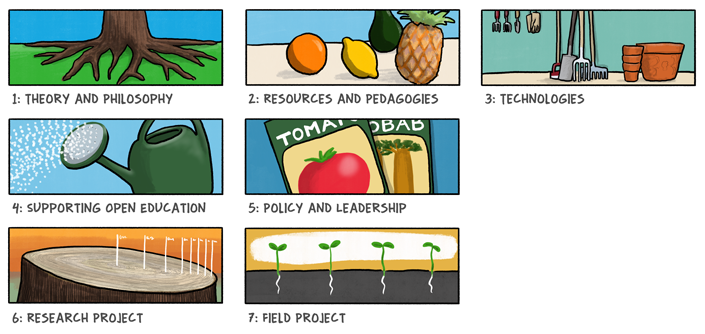
Program Format and Curriculum
Over the course of this program, learners will complete a set of five engaging six-week courses, all developed by globally recognized leaders in open education and designed to accommodate the flexibility desired by busy working professionals.
The program includes foundational courses in the history and philosophy of open education and open educational resources and pedagogies, elective courses on open educational technologies, open education policy and leadership, and supporting open education, as well as personalized guidance in designing open education research or field project proposals.
The entire program is designed to be completed within one year.
-
Tuition & Registration
Individual course fee is $850 + GST CAD.
For the full five-course program, the fee is$4,250 + GST CAD (30 weeks in total).
Each course will be paid for individually upon registration.
Register via Elevate Platform
-
2023-24 Course Schedule
Foundational Courses
- OPEN 9100 - Theory and Philosophy of Open Education
- OPEN 9200 - Open Educational Resources and Pedagogies
Elective Courses
- OPEN 9400 - Open Educational Technologies
- OPEN 9500 - Supporting Open Education
- OPEN 9600 - Open Education Policy and Leadership
Applied Courses
- OPEN 9800 - Open Education Field Project
- OPEN 9900 - Open Education Research Project
-
Advanced Entry
Learners who have already completed the Certificate in OER Librarianship through the Open Education Network (OEN) may qualify for advanced entry. The OEN Action Plan Project satisfies the outcomes of the Field Project course.
Learners who have already completed the Open Education Leadership Program through SPARC may qualify for advanced entry. The SPARC program satisfies the outcomes of the Open Educational Resources and Pedagogies and Field Project courses.
Please contact us if you have completed other formal training in Open Education and wish to inquire whether this qualifies you for Advanced Entry.
-
English Language Requirement
To be successful in this program, learners will be expected to have a level of English proficiency required for an advanced academic program such as:
- High School Graduation where English is the primary language of instruction OR,
- Post-secondary courses where English is the primary language of instruction
-
Workload Expectations and Time Commitment
Learners should expect to spend approximately 25 hours completing the activities and assessments for each course in the program, all of which are 6 weeks in length.. On average, this translates to approximately 4 hours per week per course. Each course topic is designed to be completed asynchronously to provide maximum flexibility to learners worldwide.
Course Descriptions
Courses
OPEN 9100 - Theory and Philosophy of Open Education
This course provides an overview of the roots and purposes of open education. Intended to offer a broad introduction to the scope of the field including key research themes, it surveys the growth of open education from the 1960s to today. Learners will read research and explore a wide range of examples of open education practices from a variety of contexts. An examination of the social justice ethos of open education will study such topics that underlie many open education approaches and initiatives.
Topic 1 - History, Purposes and Definitions of Open Education
Upon successful completion of this topic, learners will be able to understand, evaluate, and explain different interpretations of open education and their history.
Topic 2 - Open Education Practices and Research
Upon successful completion of this topic, learners will be able to apply knowledge of practices in open education and approaches to open research.
Topic 3 - Critical Perspectives
Upon successful completion of this topic, learners will be able to develop and apply an understanding of the critical issues relating to open education & social justice.
OPEN 9200 - Open Educational Resources and Pedagogies
This course delves into central components of open education, including open educational resources, open pedagogy, and the broader concepts of openness in research. Learners will study different content licencing regimes and apply them to a variety of scenarios, as well as review and engage in a variety of activities that demonstrate examples of open pedagogy.
Topic 1 - Content ownership, licensing, and open educational resources
Upon successful completion of this topic, learners will be able to apply an understanding of open licensing, copyright, and Indigenous cultural and intellectual property to develop a curated list of open educational resources.
Topic 2 - Open Pedagogy
Upon successful completion of this topic, learners will be able to apply an understanding of key attributes and effective practices to design an open pedagogy project.
Topic 3 - Open data, open science and open access research
Upon successful completion of this topic, learners will be able to describe the benefits and challenges of open science, open data, and open access publishing.
OPEN 9400 - Open Educational Technologies
This course provides a view into some of the technologies used in open education and how they support open pedagogies. Learners obtain an overview of some of the main tools and learning environments available, as well as their challenges and administrative requirements. Ethical and legal aspects are investigated, including current issues in education involving such technologies as facial recognition, surveillance, privacy, and ethical use of learning analytics.
Options for managing and scaling open digital learning environments and tools, as well as options for inter-institutional collaboration, are also explored in this course.
Topic 1 - Open Education Tools and Technologies
Upon successful completion of this topic, learners will be able to recognise open educational tools and technologies, identify their affordances, and evaluate their potential use in different educational scenarios.
Topic 2 - Ethical and legal aspects of learning technologies
Upon successful completion of this topic, learners will be able to identify key ethical and legal issues related to the use of education technologies and analyze educational practice through this lens.
Topic 3 - Creating and supporting open digital learning environments
Upon successful completion of this topic, learners will be able to describe the ways in which open-source projects are developed and supported and undertake an analysis of open-source educational technologies.
OPEN 9500 - Supporting Open Education
This course provides learners with an overview of the different types and systems of support required for successful implementation of open education. Learners will examine different types of scaffolding required for learners to understand and succeed in open education environments. Different types and examples of faculty development programs and supports including instructional design and educational technology expertise will be explored, in both development and delivery of open pedagogy and open education programming. The role of librarians in supporting, advancing, and advocating for open educational resources and increased diversity of resources is discussed as a key part of an open education ecosystem.
Topic 1 - Supporting Students in Open Education
Upon successful completion of this topic, learners will be able to identify and apply methods to meet learner support needs for participation in open education practices and environments
Topic 2 - Supporting Instructors in Open Education
Upon successful completion of this topic, learners will be able to identify and apply methods to meet faculty support needs for developing and implementing open education practices and environments.
Topic 3 - The Role of Librarians in Supporting Open Education
Upon successful completion of this topic, learners will be able to explore and practise aspects of open librarianship including support for learners and faculty and equitable access to knowledge and learning resources.
OPEN 9600 - Open Education Policy and Leadership
This course provides administrators and leaders with strategic-level local and global views of open education policy and leadership, with a particular focus on scenario planning that involves open education practices. The creation of open education policy frameworks is examined, along with examples of change leadership required to implement open education practices at the institutional level. Learners will participate in discussions and study examples of intra- and inter-institutional collaborations, the role of governments and the achievement of institutional missions with open education practices.
Topic 1 - Open education policy and strategy
Upon successful completion of this topic, learners will be able to explain the relationship between policy and strategy on international, national, and institutional levels.
Topic 2 - Leveraging open education through collaboration
Upon successful completion of this topic, learners will be able to leverage internal and external collaboration in support of an intersectional approach to open education.
Topic 3 - Open education post-pandemic: Building an increased emphasis on social justice
Upon successful completion of this topic, learners will be able to understand how the pandemic has exacerbated structural inequities and how open education can help advance social justice.
OPEN 9800 - Open Education Field Project
This course provides an opportunity for learners to plan a field project for an academic, workplace or other professional or community setting. Learners will find a location, propose a topic, develop a strategy for implementation and finalize the project plan. Examples could include developing and delivering a session or webinar on a specific open education practice for a specific setting, writing, and presenting a draft policy framework to a committee or other leadership entity, developing an open pedagogy guide for teachers, or proposing a draft micro- credential process for professional certification in an industry of relevance the learners' work or interest.
Topic 1 - Planning the Field Project
Upon successful completion of this topic, you will be able to develop a project plan for an open education-related field project.
Topic 2 - Operationalizing the Project
Upon successful completion of this topic, you will be able to determine how you will operationalize your field project plan.
Topic 3 - Implementing the Project
Upon successful completion of this topic, you will be able to implement and evaluate their field study project in an organizational or community setting.
OPEN 9900 - Open Education Research Project
This course provides learners with an opportunity to prepare to research a specific issue or topic in open education. Learners will begin by crafting a scalable research question. This course prepares researchers to conceptualize and operationalize a research project, including getting research ethics approval. Learners will draw upon open research methods and call upon resources that represent a diversity of scholars and practitioners. Depending on the discipline involved, the student may plan to access or use a process involving open data, open science and/or open access research.
Topic 1 - What's my Research Question?
Upon successful completion of this topic, you will be able to develop a sufficiently targeted open education research question that is grounded in the current literature.
Topic 2 - What research methods are best for my research question?
Upon successful completion of this topic, you will be able to design your research project by refining your research question, selecting the appropriate method, and planning the data collection and analyses.
Topic 3 - Complete the Research Plan
Upon successful completion of this topic, you will be able to submit a complete research plan that is informed by appropriate research paradigms and theories.
Program Badge Requirements
To receive a Professional Program in Open Education Open Badge, five courses will need to be completed:
| Foundational Courses: both required | Elective Courses: select 2 of 3 | Applied Courses: select 1 o f 2 |
|---|---|---|
| OPEN 9100 | OPEN 9400 | OPEN 9800 |
| OPEN 9200 | OPEN 9500 | OPEN 9900 |
| OPEN 9600 |
Course Developers
-
Anne-Marie Scott
Anne-Marie Scott is Deputy Provost at Athabasca University in Canada (Alberta's open and online university), and the Board Chair of the Apereo open source software foundation. Prior to Athabasca Anne-Marie was Deputy Director of Learning, Teaching and Web Services at the University of Edinburgh where she led the delivery of a large number of open educational technologies. She is an advisor to the OpenETC in British Columbia, a member of the After Surveillance and #FemEdTechnetworks and is often sought after by educational institutions and other organizations as an expert in digital education and digital strategy.
-
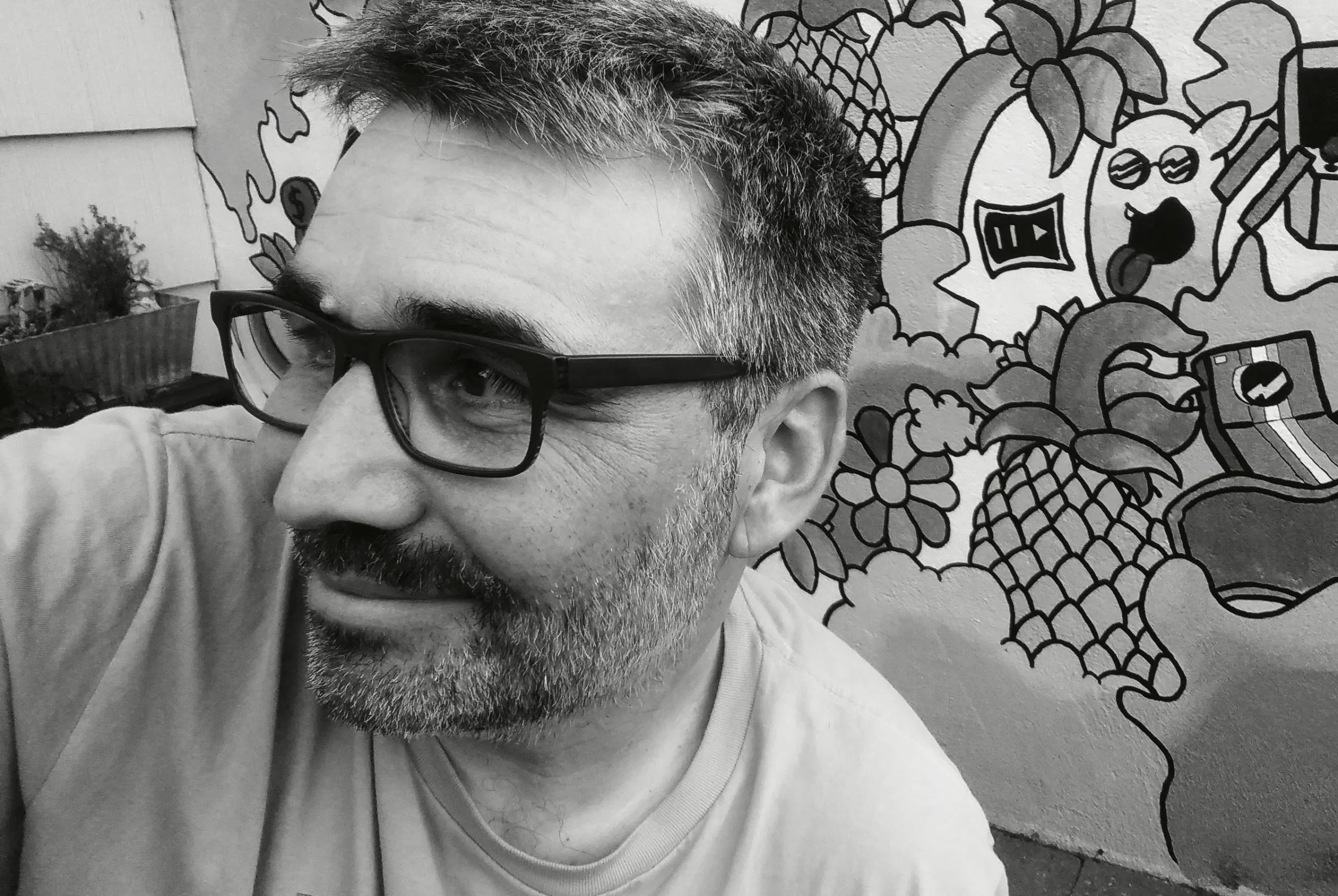
Clint Lalonde
Clint Lalonde, MA (Learning & Technology). Wrangler of learning technologies by day, Dad, cyclist, soccer fan & home roaster of coffee by night, Clint is an educational technologist and advocate for the use of open educational resources and open education practices in higher education. Clint has worked in the British Columbia post-secondary system for 25 years and is currently a project manager with the BCcampus Open Education team leading the open homework systems project. A founding member of the BC Open EdTech Collaborative, he is also Associate Faculty in the School of Education & Technology program at Royal Roads University, and an occasional Sessional Lecturer in the Department of Education at the University of Victoria. Clint's educational interests include network learning, social learning, education technology, and open education.
-
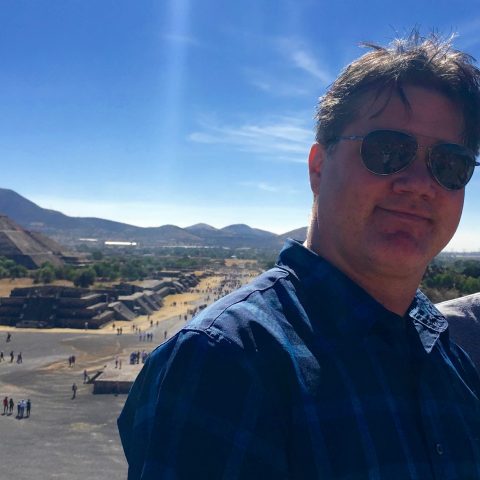
Brian Lamb
Brian Lamb is Director, Learning Technology and Innovation, at Thompson Rivers University. His team is responsible for the production and maintenance of more than 600 fully online and distance Open Learning courses, and he also oversees the learning technology environment and support for face-to-face and blended learning needs across the institution. Brian has spent more than twenty years working with the open web to promote learning, communication and collaboration. He is a co-founder of the OpenETC, which is dedicated to providing and supporting open ed tech in British Columbia, and is a contributor to the Higher Education After Surveillance collective. He blogs at https://abject.ca.
-
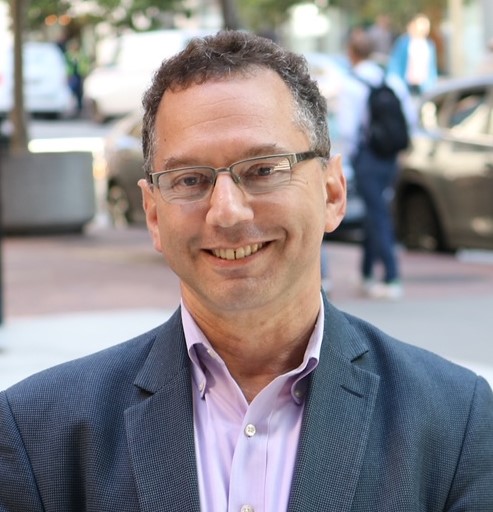
Marc Singer
Marc Singer is Vice President for Academic and Student Affairs at SUNY Sullivan in New York. He has spent most of his academic career working to improve educational options for nontraditional and adult learners. He has led programs and initiatives in the areas of online learning; integration of student services and mentoring into the curriculum; prior learning assessment, including portfolio development and assessment; credit-by-exam programs; and the review of training programs, licenses, and certifications for college-level equivalency. Marc has also led efforts in the areas of competency-based education and the effective utilization of open educational resources. He has created partnerships and consortia to streamline and scale processes, strengthen standards, and provide greater flexibility and access to adult students. For seven years, Marc served as director and chair of the National Institute on the Assessment of Adult Learning.
Marc was founding Dean of the School of Undergraduate Studies at Golden Gate University in San Francisco. Prior to that, he was Vice Provost, Center for the Assessment of Learning, at Thomas Edison State University in Trenton, NJ. Previously, he led academic initiatives for the College Board's College-Level Examination Program and other assessment programs; at Educational Testing Service, he was an assessment specialist responsible for the Advanced Placement US History and Human Geography programs, and was a program director for the PSAT/ NMSQT program.
Marc taught history and humanities at institutions in New Jersey and North Carolina for 12 years, and worked as a consultant in history for various museums and television networks, including ESPN Classic.
-
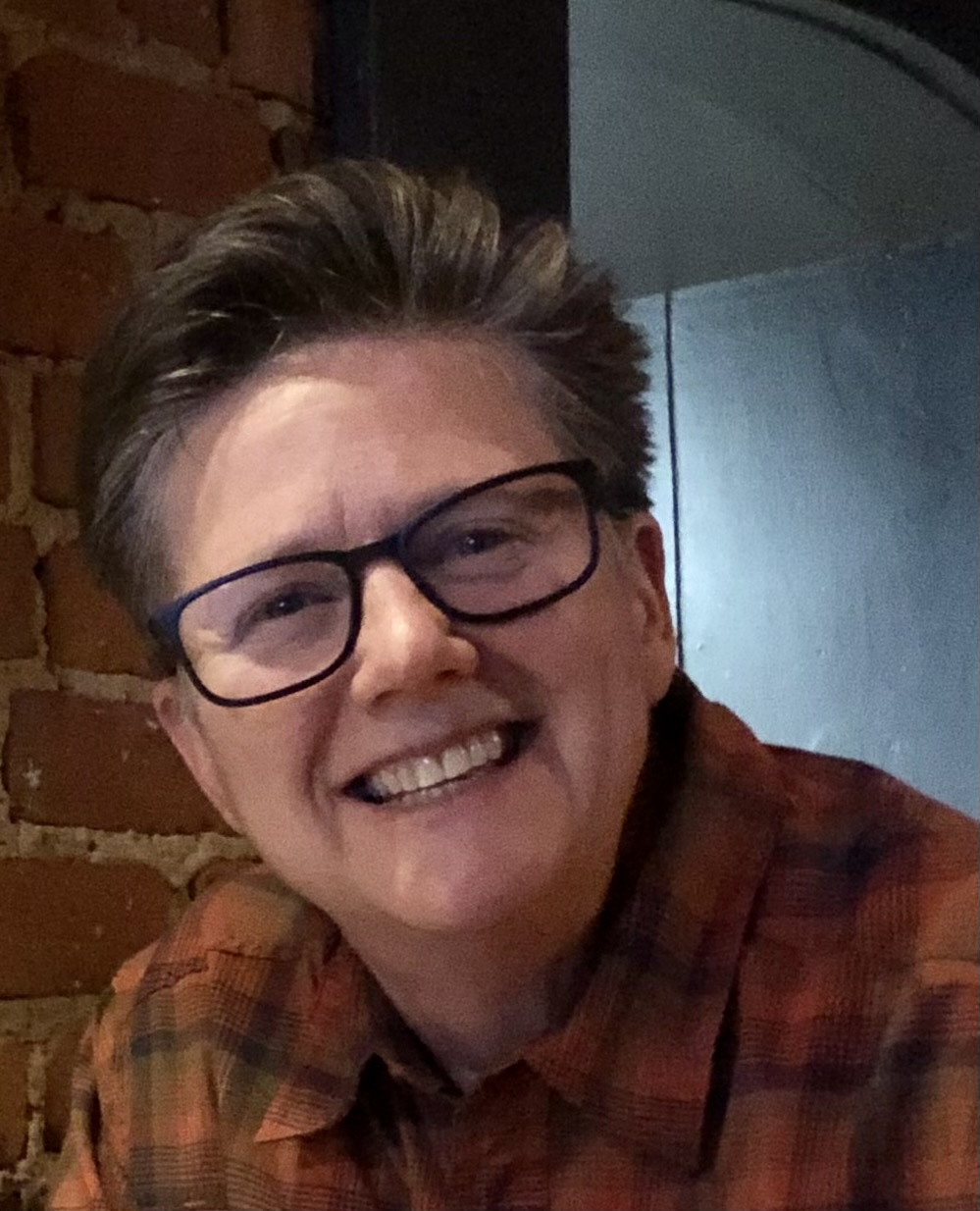
Karen Cangialosi
Dr. Karen Cangialosi is the Program Director of the Regional Leaders of Open Education (RLOE), an OE Global/CCCOER network designed to build OE leadership in postsecondary institutions across North America. She is also a co-founder of the Institute for Racially Just, Inclusive and Open STEM (RIOS) and serves as the RIOS Director of Open Ed and Open Science. She is frequently invited to present and consult about open education in the U.S. and abroad.
A biology professor and fierce student advocate, she incorporates open pedagogy into all her courses, and she leads faculty development efforts in open and critical digital pedagogy. Because she believes that scientific investigation should be transparent, widely collaborative and designed to serve the public, she advocates for integrating the principles and practices of Open Science into the undergraduate STEM curriculum. She has also been a long-time street activist and lesbian feminist who has marched, chanted, organized actions, and led many community organizations fighting for women’s rights, LGBTQ rights, anti-racism, and social justice.
-
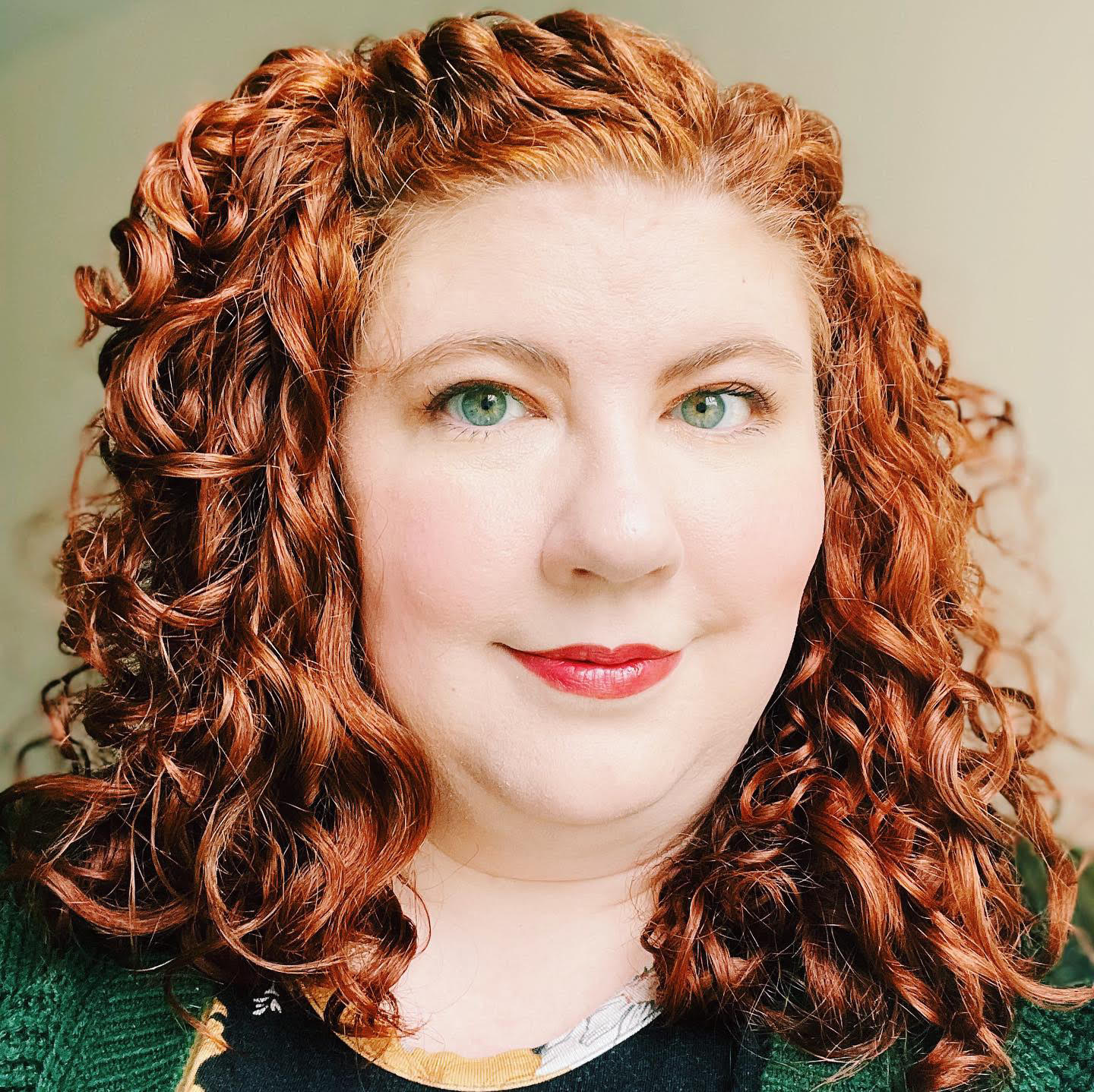
Amanda Larson
Amanda Larson is the Affordable Learning Instructional Consultant at The Ohio State University where she creates professional development opportunities for staff, librarians, and instructors around open pedagogy and open educational practices. Previously, she was the Open Education Librarian for University Libraries at Penn State University where she coordinated affordable content initiatives across all Penn State campuses.
-
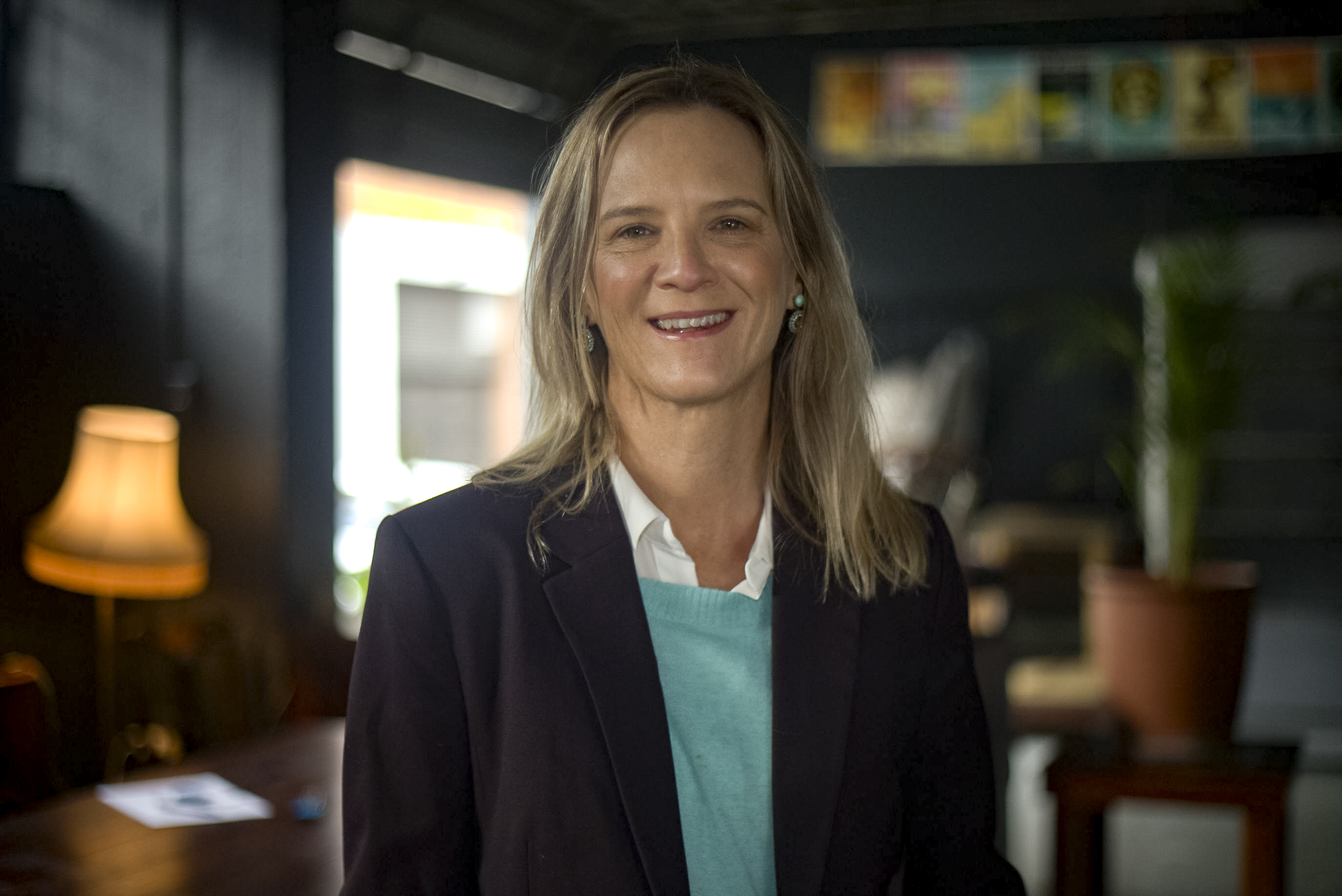
Glenda Cox
Dr. Glenda Cox is a senior lecturer in the Centre for Innovation in Learning and Teaching at the University of Cape Town and her portfolio includes Curriculum projects, Teaching with Technology innovation grants, Open Education Resources (OER) and Staff development. She completed her PhD in Education and her research focused on using the theoretical approach of Social Realism to explain why academic staff choose to contribute or not to contribute their teaching resources as OER. She is passionate about the role of Open Education in the changing world of Higher Education.
Dr. Glenda Cox is currently the Principle Investigator in the Digital Open Textbooks for Development (DOT4D) project, funded by the Canadian International Development Research Centre (IDRC). Her current research includes analyzing the role of open textbooks for social justice.
-
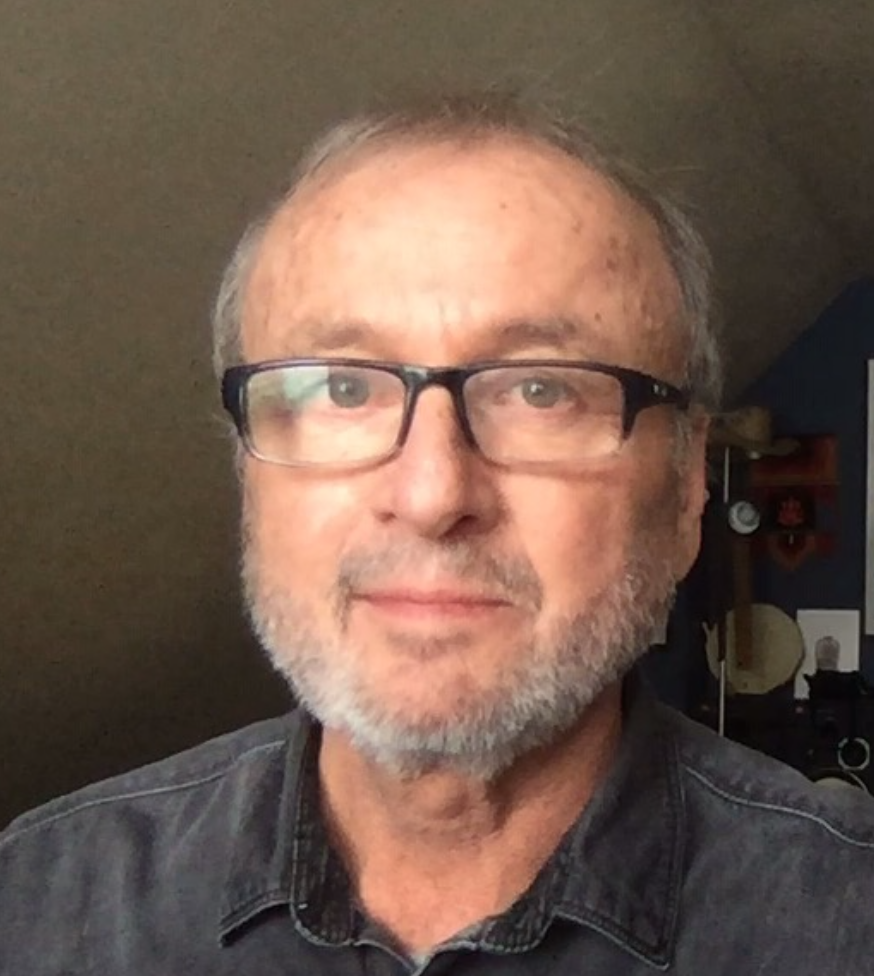
Irwin DeVries
Irwin DeVries teaches in the online Master of Learning and Technology Program at Royal Roads University. His experience includes instructional design, curriculum development and open education. Most recently he was director of curriculum development and interim associate vice-president of Open Learning at Thompson Rivers University. In his early career Dr. DeVries was a course designer for the original BC Open Learning Institute and since then worked in both professional and higher education settings. He holds a PhD in Education from Simon Fraser University.
-
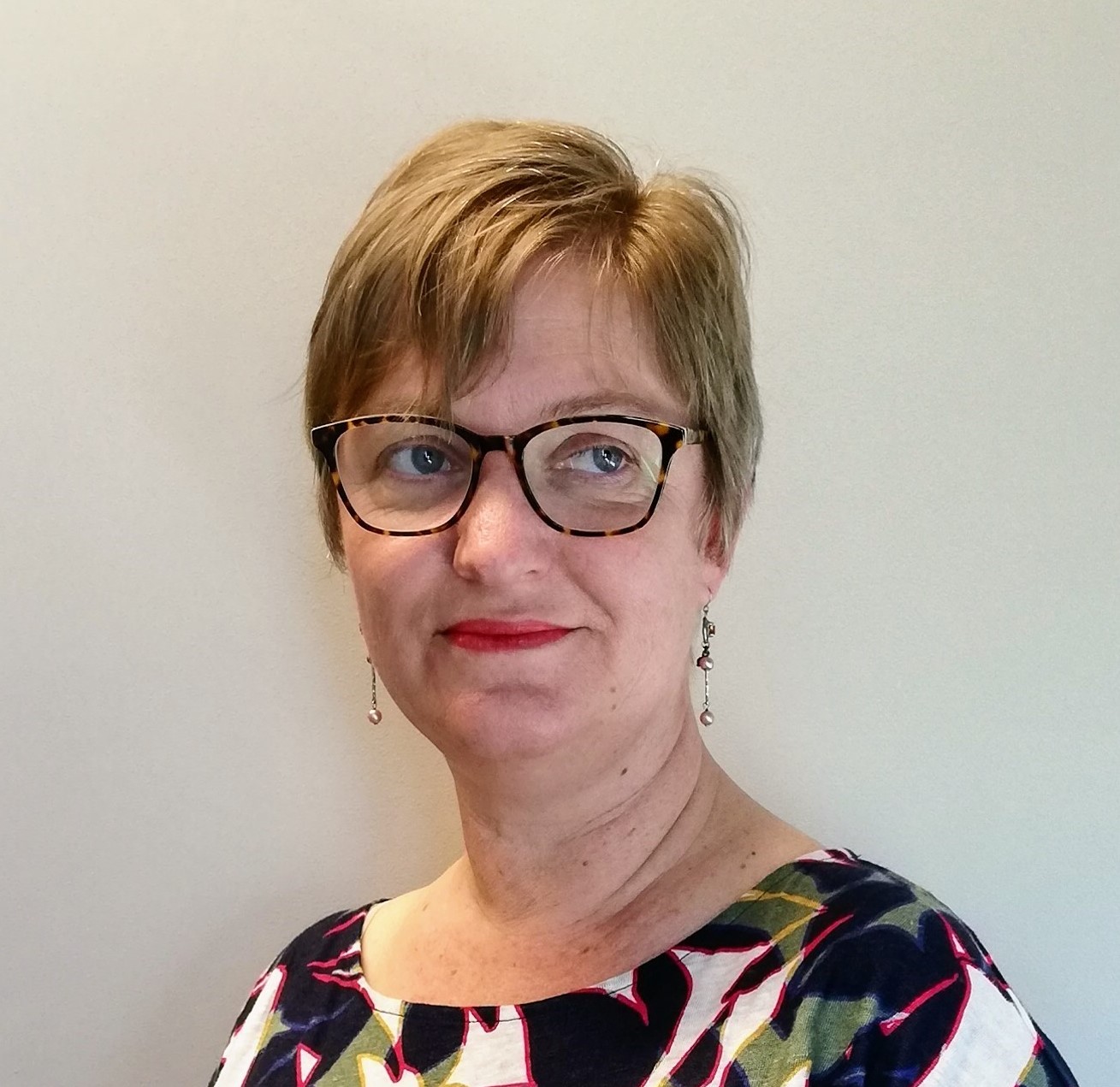
Sarah Lambert
Dr. Sarah Lambert is a leading researcher, collaborator and practitioner of social justice and widening participation in higher education. Currently an Honorary Research Fellow at Deakin University (Australia), her research explores gendered and socio-cultural barriers to education mediated by technology. Sarah recently led the Australian research project ‘Open textbooks as social justice: a national scoping study’ funded by the National Centre for Student Equity in Higher Education (NCSEHE). She is an award-winning researcher and writer of academic publications and an experienced editor and mentor of up and coming research-writers.
-
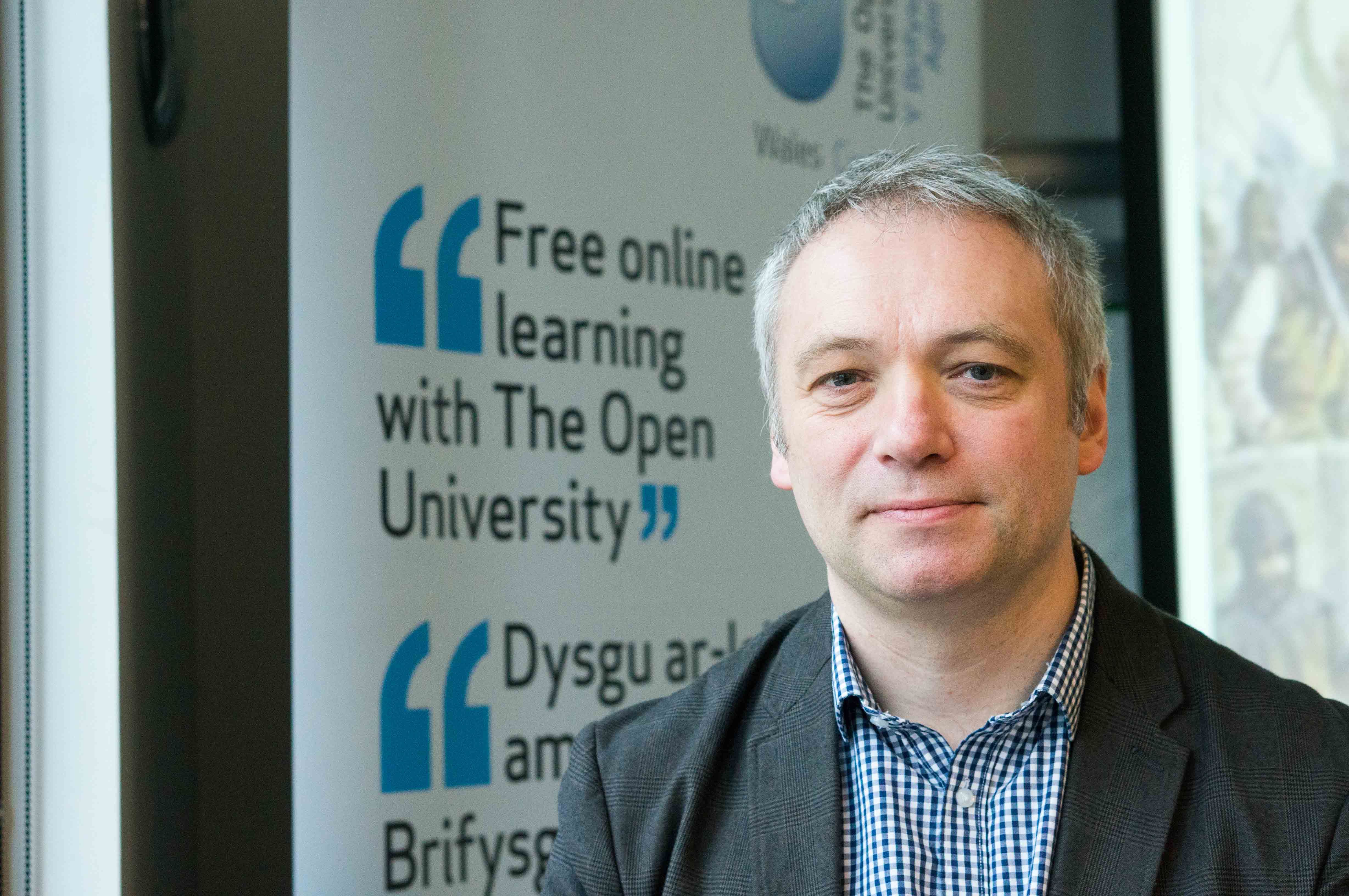
Martin Weller
Martin Weller is Professor of Educational Technology, in the Institute of Educational Technology (IET) at the UK Open University, and holds an honorary Chair in Open Education from the Commonwealth of Learning. He is currently the Chair of the Open Programme, the Open University’s flexible, multi-disciplinary degree. He developed the OU’s first fully online course in 1999, which attracted over 15,000 students annually.
He was the OU’s first Virtual Learning Environments Director, and is the Director of the OER Hub team, who undertake research into aspects of open education. He is the author of The Battle For Open, The Digital Scholar, and 25 Years of Ed Tech and maintains a popular blog at blog.edtechie.net.
About CPS
KPU's Continuing & Professional Studies (CPS) courses allow you to continue your professional education, upgrade specific skills or discover something entirely new without having to commit to a full-time program. Offered online and in-person at five campuses across the Lower Mainland, KPU offers flexible opportunities to learn. Whether you want to follow a creative passion or elevate your career to the next level, discover the continuing education opportunities at KPU!
About KPU
KPU is a public post-secondary institution located in British Columbia, Canada. KPU offers over 140 diverse programs and serves more than 20,000 students each year across our five urban campuses and online. As Canada's only polytechnic university, KPU's motto is: Where thought meets action.
KPU is a recognized global leader in open education. We are home to Canada's first Zero Textbook Cost programs and strongly encourage and support the embrace of open educational practices. This includes the development and publication of open educational resources via our Open Publishing Suite (OPUS), the embrace of innovative open pedagogies, as well as institutional support for open education research. Through the Professional Program in Open Education we are proud to bring our expertise to support the global community of open education practitioners.